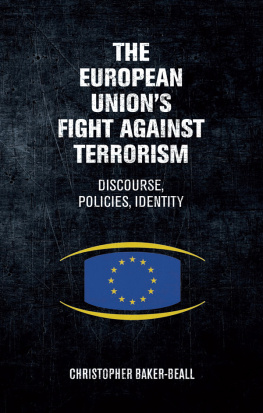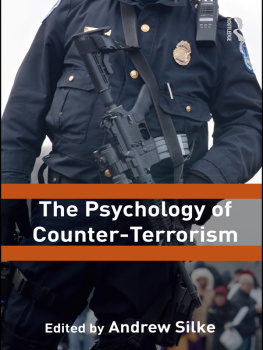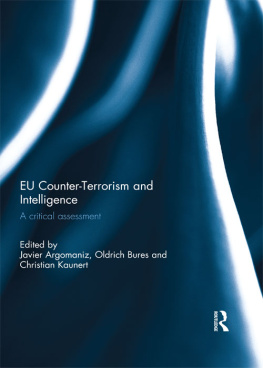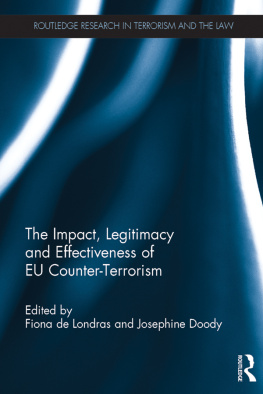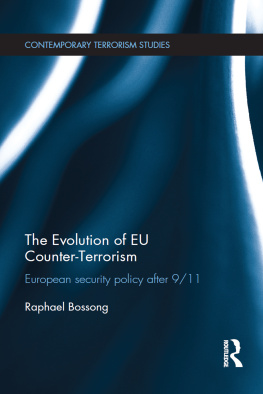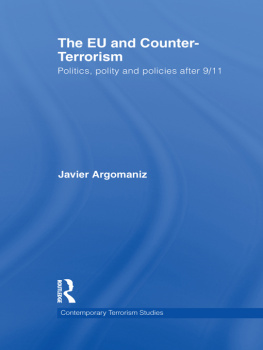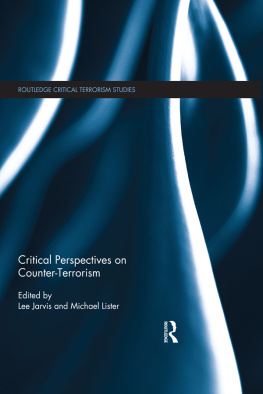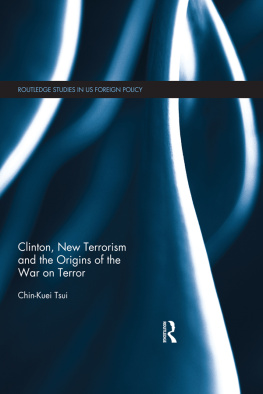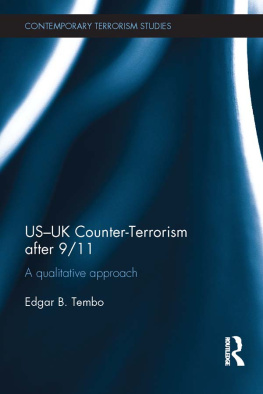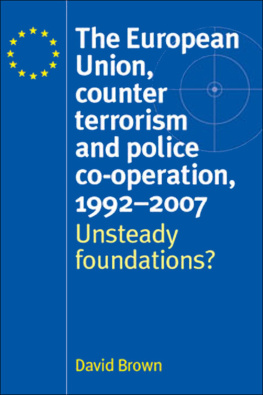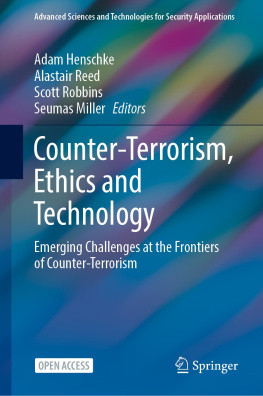Copyright Christopher Baker-Beall 2016
The right of Christopher Baker-Beall to be identified as the author of this work has been asserted by him in accordance with the Copyright, Designs and Patents Act 1988.
Published by Manchester University Press
Altrincham Street, Manchester M1 7JA
www.manchesteruniversitypress.co.uk
British Library Cataloguing-in-Publication Data
A catalogue record for this book is available from the British Library
Library of Congress Cataloging-in-Publication Data applied for
ISBN 978 0 7190 9106 3 hardback
First published 2016
The publisher has no responsibility for the persistence or accuracy of URLs for any external or third-party internet websites referred to in this book, and does not guarantee that any content on such websites is, or will remain, accurate or appropriate.
Typeset by Out of House Publishing
I began my academic journey at Nottingham Trent University in late September 2001, only a few weeks after the attacks on 11 September. The first lecture I attended was given by Professor Stephen Chan. I remember sitting transfixed for an entire hour as Professor Chan proceeded to give a lecture, entirely from memory, on the history of Russian and American involvement in Afghanistan, the rise of the Taliban and the emergence of Al-Qaida. Throughout, the audience was so quiet that one might have heard a pin drop. At the end of the presentation the lecture theatre erupted with applause. I can remember thinking that I wanted to be able to do that, to be able to speak for an hour and captivate an audience. I think it was then that I subconsciously made the decision that I wanted to be an academic. My undergraduate studies were heavily influenced by the teachings of two academics. In particular, Chris Farrands, who inspired my interest in the subject of International Relations, and Roberta Guerrina, whose classes on the idea of Europe sparked my interest in European Studies and the European Union. I am grateful to both for introducing me to subjects that I have come to love and am now lucky enough to teach to a new generation of students. After completing my degrees at undergraduate and MA level at Nottingham Trent University in August 2006 I won a scholarship to study EU counter-terrorism policy at Loughborough University.
There is one person in particular that I must thank for the opportunity and that is the late Dave Allen, who was Head of Department at Loughborough at that time. I first met Dave at a conference in Nottingham in 2005 where we discussed potential opportunities for postgraduate study in the Department of Politics, International Relations and European Studies. Like many students who have come out of that department at Loughborough, I will forever be grateful to Dave for giving me my shot. After winning the award, I remember discussing with Dave who would be my supervisor and I clearly remember him telling me that he had the perfect supervisor for me. To Helen, I would like to thank you for your support throughout my PhD and for teaching me to think and write like an academic. I could not have done it without you and I am forever grateful for your continuing support. You really were the perfect supervisor that Dave promised me. I would also like to thank Olly, who joined my supervisory team about two years into the project, for teaching me how to understand and see discourse analysis as a method. I could not have written this book without the help and support that both have provided throughout my career to date. After completing my PhD I was given an opportunity to teach at Loughborough by Lee Miles on his MA Foreign Policy module. As well as this, in August 2012 I was given an opportunity by Ces Moore to teach modules at third-year and MA level on terrorism, Security Studies and Critical Security Studies at the University of Birmingham. I will forever be grateful to Lee and Ces for these opportunities in that not only did they help to improve my knowledge of International Relations, and therefore the book, but without them I would not have landed my first permanent job at Nottingham Trent University in the summer of 2013. I would like to thank Ces in particular for lending his time, support and guidance on all things academic, as well as our always interesting football-related discussions.
On to the book itself and there are many people who have supported me during the writing process to whom I owe a deep debt of gratitude. To all of my colleagues in the Division of Politics and International Relations at Nottingham Trent University, my thanks for providing such a supporting and collegial environment that is a pleasure to work in. I certainly feel as though I was granted the time and space to complete this project. To my colleagues in the Critical Terrorism Studies working group, my thanks for providing such a friendly and open outlet for early career academics to share their research. In particular, I want to say thanks to Charlotte Heath-Kelly and Lee Jarvis, with whom I worked as co-convenor of the working group, I learnt so much from you when editing the special issues of Critical Studies on Terrorism and working on our edited collection on Counter-Radicalisation: Critical Perspectives. My thanks to everyone who has provided comments on earlier drafts of the work produced in this book, including Oliver Daddow, Helen Drake, Chris Farrands, Charlotte Heath-Kelly, Richard Jackson, Lee Miles and Ces Moore to Helen and Richard in particular for reading and commenting on the entire draft script. To all of my students and in particular those who have taken my second-year module on Understanding Foreign Policy, learning is a two-way process and I have learnt as much from you as I hope you have learnt from me. My thanks to all of you for being such willing, interested and engaged students it really has been a pleasure to teach all of you. I would also like to thank two students in particular for their editorial help on the manuscript for this book: Alan Armstrong and Gareth Mott, who I am certain will both go on to be exceptional academics in the future.
Earlier versions of parts of this book have appeared in other publications. The discussion of EU actorness in the was developed out of the article, The discursive construction of EU counter-terrorism policy: writing the migrant other, securitisation and control, Journal of Contemporary European Research (JCER), Special Issue: Security and Liberty in the European Union, 5:2 (2009), 188206 (reproduced with the permission of UACES and the JCER). Thank you to the copyright holders for permission to draw on those publications.
Above all though, I want to say thank you to my friends and family. To my Mum and Dad, I really could not have got to where I am today without your love, help and considerable support. I want to thank you for everything you have done to support me over the years. It is to you that I dedicate this book. Finally to Tamara, who had to deal with periods where I was unable to give her the attention that she deserved, my thanks for being so loving, positive and supportive whilst I was writing the book. Your inspirational words always kept me going during the periods when I felt like I would never finish this project. I could not have written this book without you.
Perhaps even more insidious than the threat to our lives, is the threat that terrorism poses to the very nature of our societies. Terrorism can strike anywhere, anytime, anyone. It is frightening in its unpredictability and unsettling by its random nature For all of us, the fight against international terrorism is a growth area. And because terrorism is a global phenomenon, we need a global response. (Javier Solana, 2005)

